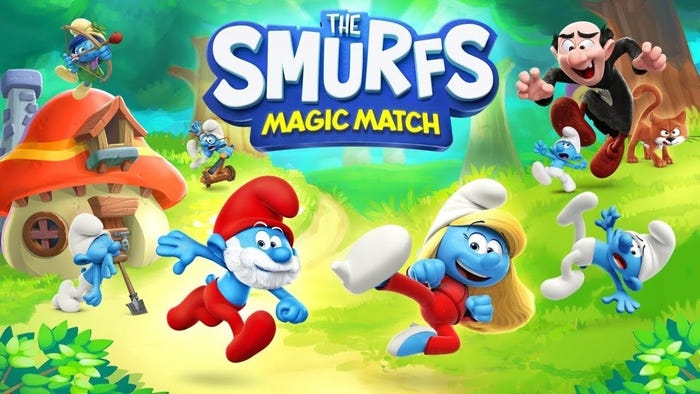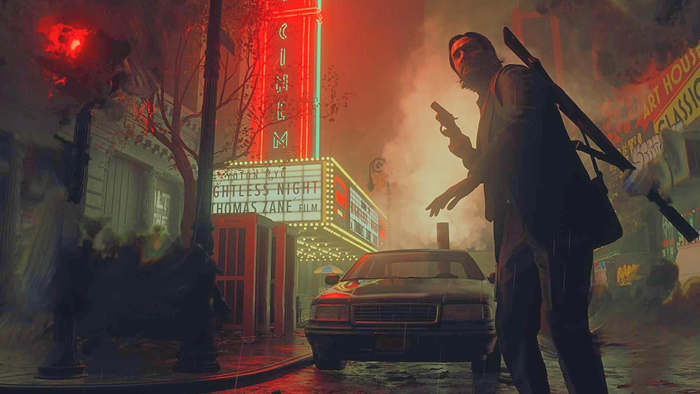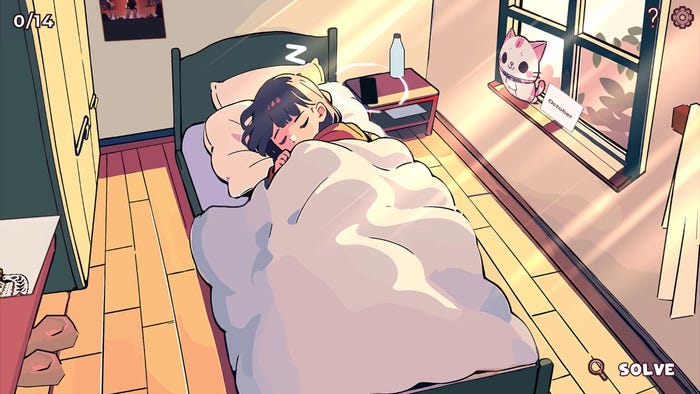
Featured Blog | This community-written post highlights the best of what the game industry has to offer. Read more like it on the Game Developer Blogs.
The Contract: Dark Souls vs. Skyrim
In which Joey discusses the experiential contract that players agree to when purchasing a new game, set against the backdrop of the upcoming releases of Dark Souls and The Elder Scrolls V: Skyrim.

IGN.com recently ran an article entitled "Top Five Reasons Dark Souls Will Eat Skyrim's Face." The article places each title in opposition to the other in arock-em sock-em style standoff. The author, Casey Lynch, argues that Dark Souls "beats" The Elder Scrolls V: Skyrim one-to-one in a comparision on five different levels: online multiplayer, DLC and pricing, epic scope, tight combat and true challenge, and, the coup de grace, dragons.
Judging by some of the categories, the point of the article was more to incite the fanbase and start a discussion than to prove a point. Everyone with a pulse and the faintest interest in the goings on of the industry knows that people go crazy over Bethesda titles, be they medieval or post-apocalyptic.
As a newcomer to the epic console RPG game (seriously, no pun intended), FromSoftware's Dark Souls appears ready and able to steal some of the holiday spotlight from Todd Howard's latest jaunt through the world of Tamriel.
Or does it?
The problem with comparing these two games to determine which one is "better" (and I'm talking subjective critical acclaim here, because the Elder Scrolls serious has a much larger fanbase in addition to being considerably more accessible) is that they both offer fundamentally different experiences to the player.
Yes, yes, they're both fantasy RPG action games, but the main reason that people choose to play Elder Scrolls games is vastly different from the reason that people went after Demon's Souls, Dark Souls' spiritual predecessor (again, not a pun).
People play Elder Scrolls games to get lost in the vast, incredibly emergent fantasy world of Tamriel. What story exists in Bethesda games, while not precisely tacked on, definitely takes a back seat to the truly massive possibility space afforded by the rules of the game.
Generally speaking, in Elder Scrolls games you can go anywhere and do almost anything. In a very real sense, it's like the GTA of fantasy roleplaying games. I've heard Oblivion described as a fantasy procrastination simulator: "Yeah, I could go save the world from Oblivion. OR I could go see if the theives' guild is hiring." 100+ hours later, the player still hasn't started the main quest line because they've been too busy running around doing basically whatever they feel like.
Dark Souls, if it's anything at all like its predecessor, won't really accomodate all of that screwing around. Providing an massive, open world ripe with emergent gameplay possibilities isn't the point of the game.
The key difference lies in the game mechanics - Dark Souls is built to give players a challenging gameplay experience. Elder Scrolls titles (of which Skyrim is likely not an exception) aim to give players a sandbox to play around in. Reminiscient of the hardcore games from decades of yore, Dark Souls is, by all accounts, as punishing as Demon's Souls was, if a bit more accessible.
Players pick it up to challenge themselves. They want to be able to tell their friends about how they surmounted the myriad challenges that they encountered and brag about how much of a pain the whole experience was. With Elder Scrolls players, the result is very different. Players talk about their experiences robbing entire cities blind, or living as a hermit in the forest for days on end just because they felt like it.
The point is, while the games might seem similar in structure and function, they are not the same in experience. As game designers, we have to realize that it's the experience of play that concerns us more than anything else. Dead Space and Gears of War are both linear third person shooters, but for various reasons the experiences that they afford are vastly different.
Looking beyond units shipped and sales numbers momentarily for the sake of discussion, for gamers a title is only truly successful if the experience that that title provides for them meets or exceeds their expectations. This is where the concept of the contract comes in. The contract describes the expectations that players have for their gaming experience and has a direct impact on their ability to suspend disbelief and become immersed in the game's virtual world.
For example, when loading up Mass Effect 2 for the first time, players have a basic understanding about the game they are about to play through. Most people will know ahead of time that they are going to be taking on the role of Commander Shepard and that their goal in the game is to save the galaxy from whatever might threaten it.
I hate to deal in absolutes, but no one expects to hop into a round of Mass Effect 2 and go on a Citadel-wide killing spree just for funsies. Nor do they expect to engage in competive 3PS multiplayer over the internet. They expect to inhabit Shepard and to help him or her on their impossible mission. After all, isn't that what it says on the outside of the box?
Expecting online multiplayer or considerable challenge in an Elder Scrolls game is like hopping into an ME2 session and planning to start an intergalactic plumbing service based out of the Normandy SR2. It's completely against the tacit contract of mutual expectation that has been engendered within the player by the game designers and their marketing teams. Likewise, Dark Souls players probably don't expect to spend much time picking flowers - they expect to spend their time dead.
Because the experiences offered by both games are so fundamentally different, it's really unfair to Bethesda to say that Dark Souls will "beat" Skyrim. It's like saying that a pro football player is better than a pro baseball player is better at sports - the juxtaposition is meaningless without the associated context.
Anyway, I'm not knocking Casey Lynch or the article on IGN. Those guys get paid to stir the pot and to get consumers all riled up for prime retail season. I'm sure that Dark Souls will do an excellent job of fulfilling the expectations of its players and that Skyrim will do the same for its target audience. The important thing, as always, is to design your gaming experience with your target audience in mind and to make sure that you manage their expectations appropriately.
As for me, while everyone else is collecting souls and slaying dragons in Northrend, I mean Skyrim, I'll be helping Nathan Drake find his way out of a big-ass desert. You know. That, and waiting for December 20th to roll around so's I can finally start collecting Wookie pelts and green lightsabers.
Bounty Hunters ftw.
Viva la empire!
Read more about:
Featured BlogsAbout the Author(s)
You May Also Like









